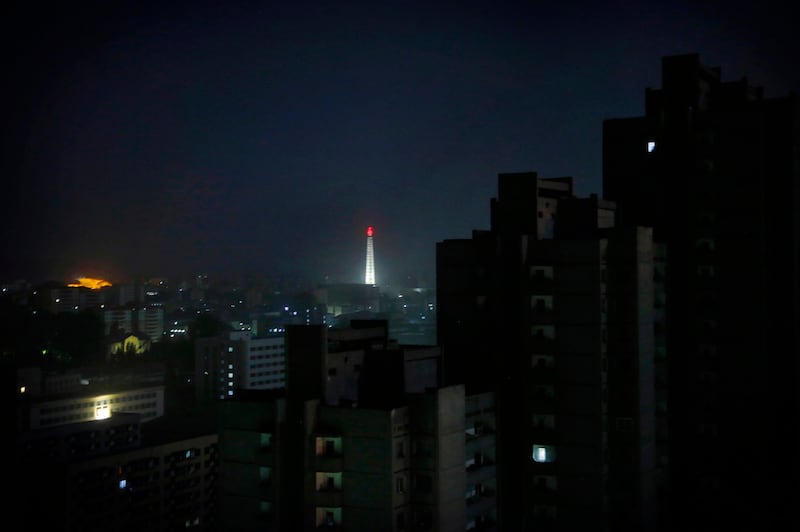North Korea is cracking down on electricity theft, punishing not only residents who tap into factory supply wires, but also the corrupt officials that sell them access, residents in the country told Radio Free Asia.
Electricity is not supplied to residential areas all day and all night in North Korea.
Instead, rolling blackouts are common everywhere, with some rural parts of the country only getting one hour of power each day so that they can prepare dinner.
But factories, hospitals and other important government facilities receive a steady supply. Shrewd employees at those facilities make extra cash by charging residents to run wires from their houses to connect with the industrial wires.
“The social security department is patrolling each neighborhood of the town at night, cracking down on houses that secretly use industrial electricity,” a resident in Kyongwon county in the northeastern province of North Hamgyong told RFA Korean on condition of anonymity for personal safety.
“They regularly go to factories and institutions to check to make sure there are no electric wires connected to homes,” he said. “Two days ago, a house was caught using electricity at night by tapping into an industrial wire. Six houses have been cracked down on by the county, just this month alone.”
Location, location, location
The amount of electricity the government supplies to your home depends greatly on where you live, he explained.
“Kyongwon is a typical agricultural county with a few small local industrial plants and coal mines,” he said. “Electricity was well supplied until the fall threshing season, but now it is only available for about an hour a day.”

Though the capital Pyongyang is given priority, even residents there usually go without power for some of the day. Areas close to the border with China also receive more electricity because the government wants to give a good impression to the outside world.
Kyongwon county borders China, but the populated areas are some 5 kilometers (3 miles) away, so they have not been deemed important enough for constant supply.
“On January 1st, the New Year’s special electricity supply lasted less than six hours that day,” the resident said.
Least wonderful time of the year
Most of the electricity in the border areas is generated by hydroelectric power, and output is lower in the cold winter months, another resident from North Hamgyong told RFA on condition of anonymity to speak freely.
“As winter approaches and electricity is not readily available, there are many cases of people being caught secretly using industrial electricity,” he said. “Around January 10, a house in Kilju town that had been secretly using the military hospital’s electricity for over three months was caught.”
The resident said that the wires had been installed in such a way that detecting them was not easy.
“Also they dug into the ground about 30 meters (98 feet) away from the hospital and buried the electric cables all the way to their house,” he said. “The next-door neighbor never noticed the house was using industrial electricity.”
The police investigated the situation and discovered that a hospital employee who oversees its electrical equipment connected the cables in exchange for 100,000 won (US$12) per month,” he said.
“The hospital employee and the male head of the house were punished with three months in a disciplinary labor center,” the second resident said.
Using industrial electricity in the home is common practice for government officials and rich residents, he explained.
The rich and powerful can usually bribe or bully their way out of punishment in North Korea.
“It is only the powerless residents who are caught and punished,” he said.
Translated by Claire S. Lee. Edited by Eugene Whong and Malcolm Foster.

